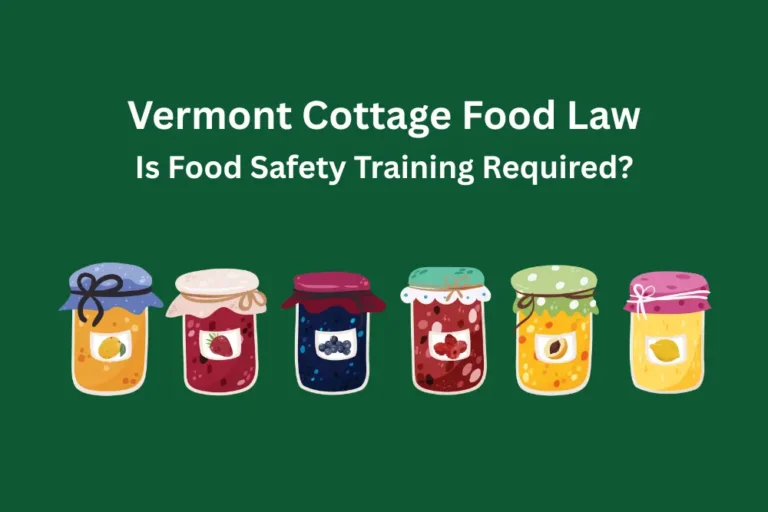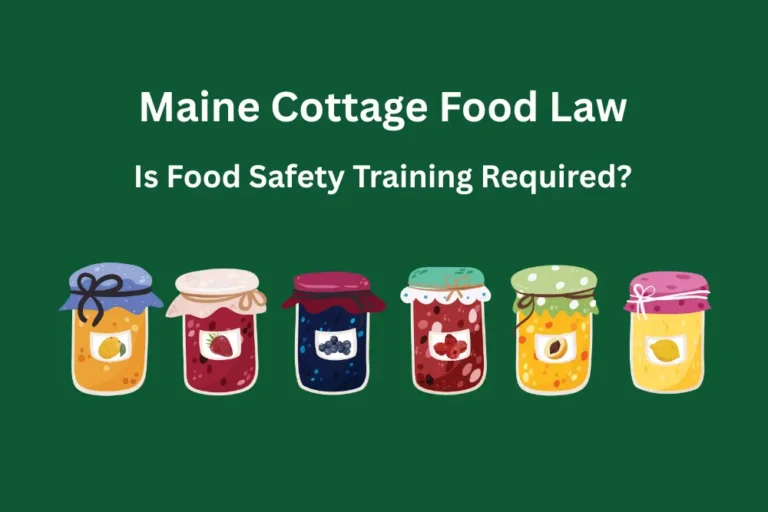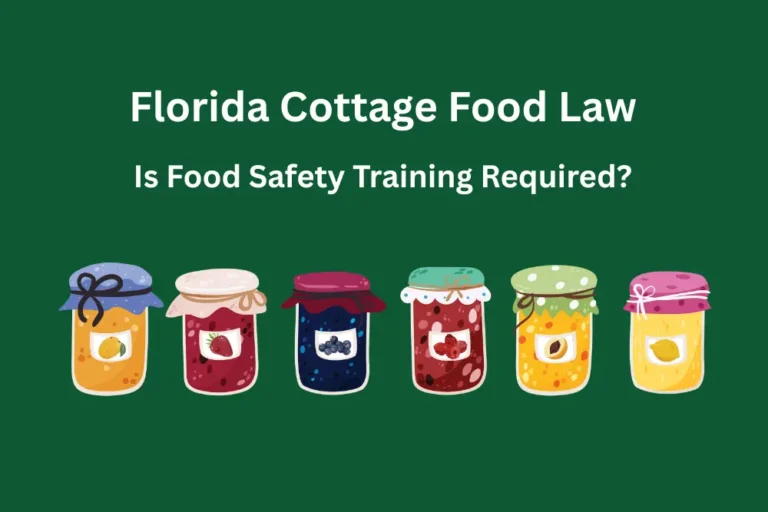Illinois Cottage Food Law: Required Food Safety Training
Article Summary
Selling homemade food in Illinois? You’ll need to follow the state’s cottage food law — and that includes earning your food manager certification. This short video explains exactly who needs training, what foods you can sell, and how to get certified online with FoodSafePal.
Each state has its own cottage food law, regulating what foods you can make and sell, how and where you can sell them, and what safety requirements you must meet.
Before you can operate a cottage food business, most states — including Illinois — require you to complete an approved food safety training course, among other steps.
This article discusses the Illinois cottage food law and whether you need food safety training to sell homemade food.
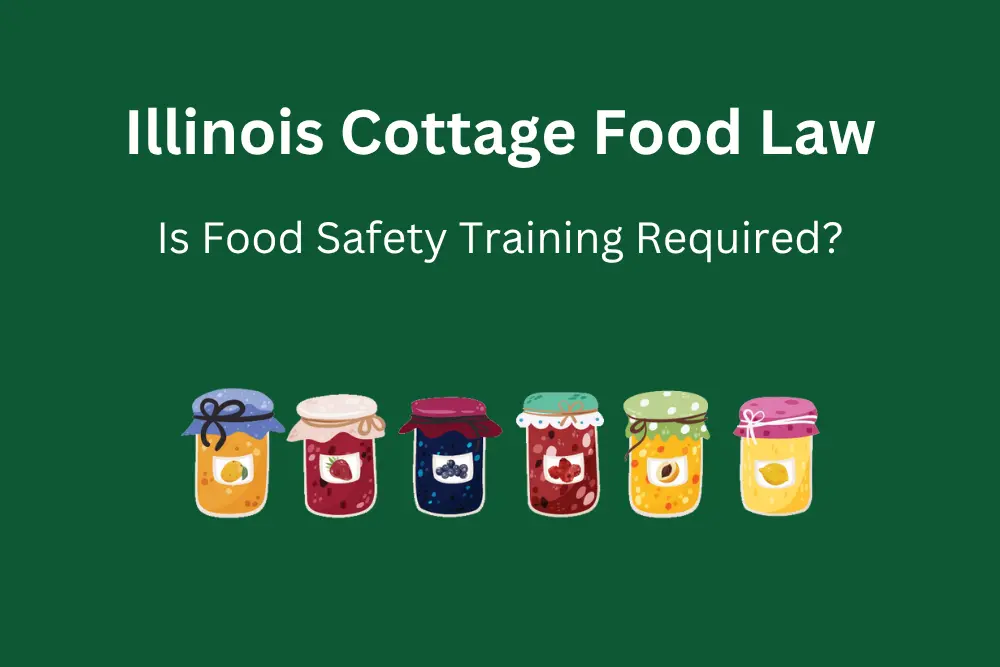
Illinois cottage food production
Illinois allows the production and sale of a wide variety of foods under its cottage food law as long as the foods don’t require time or temperature controls to keep them safe.
Examples of permitted foods include:
- baked goods (without cream or custard fillings)
- jams, jellies, and fruit butters
- dry herbs and spices
- granola and trail mix
- popcorn, dry noodles, and candy
- acidified and fermented foods (if properly tested or approved)
Foods you cannot sell under Illinois’ cottage food law include:
- alcoholic beverages or kombucha
- meat, poultry, and seafood, and
- dairy products or eggs (except as an ingredient in a nonhazardous baked good)
- cut leafy greens, unless dehydrated, acidified, or frozen
- any food requiring refrigeration unless otherwise tested and approved
Illinois allows you to sell directly to customers at:
- farmers markets
- fairs and festivals
- your home or farm (for pickup)
- online (within Illinois)
- via delivery (within Illinois)
You may not sell to restaurants, stores, or anyone who intends to resell your product.
Shipping is allowed only within Illinois and only for nonhazardous foods. Each product must be sealed with tamper-evident packaging.
Illinois does not regulate cottage food operations in the same way it regulates retail food establishments, but your local health department may inspect your kitchen if there is a complaint or concern about food safety.
Summary
Under the Illinois cottage food law, you can sell foods that don’t require time-temperature controls for safety directly to customers within the state.
Do you need food safety training to sell homemade food in Illinois?
To sell homemade food in Illinois, you must earn your food manager certification — also known as the Certified Food Protection Manager (CFPM).
You earn this certification by passing an exam accredited by the Conference for Food Protection and the ANSI-National Accreditation Board (ANAB).
You’ll need to submit proof of your certification when registering with your local health department. It’s also good to keep this certificate in a safe and easily accessible, and while not required, it’s best practice to have it on display at the point of sale and posted on your website if you have one.
You must maintain the certification by passing the test every five years.
There are no prerequisites to take the exam, but it’s wise to study for it by completing a food manager training course, such as FoodSafePal’s.
Illinois Food Manager Certification (CFPM) Prep
Your best training for preparing to pass the food manager certification exam with ease.
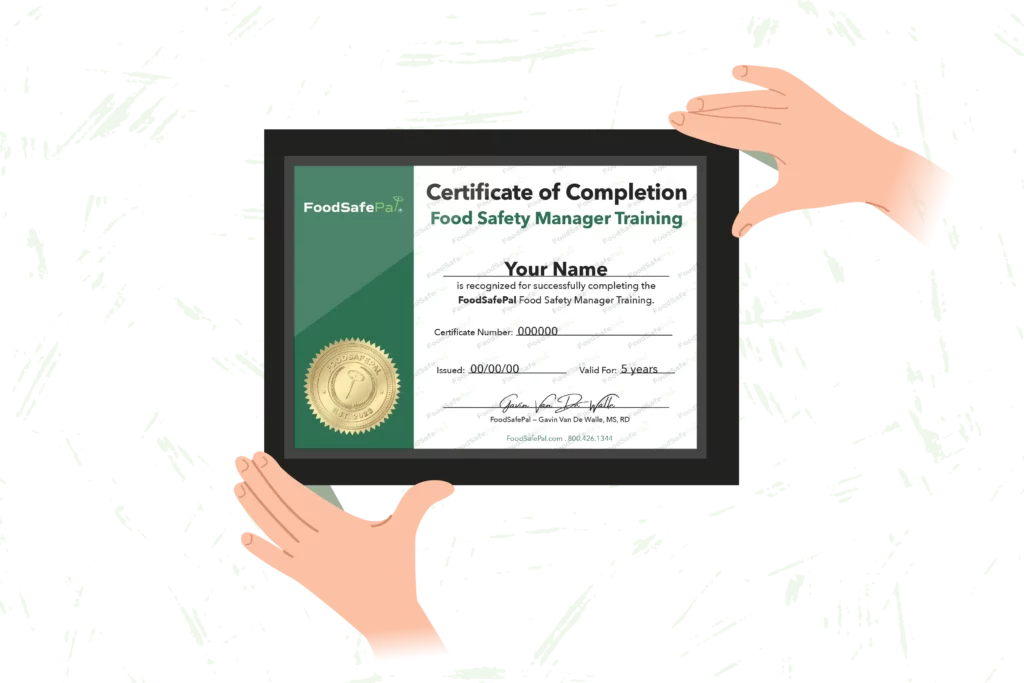
FoodSafePal’s food manager training is clear, focused, and practical, with no filler — just what you need to know to feel confident on exam day.
Starting in September 2025, FoodSafePal will also offer the nationally accredited CFPM exam as part of its program.
Summary
Illinois’ cottage food law requires that you earn your food manager certification (CFPM) before selling homemade foods. It’s recommended to take an online food manager training course, like the one offered by FoodSafePal, to ensure you’re ready on exam day.
Labeling requirements
Illinois’ cottage food law requires that each product you sell is properly labeled with certain information.
Every product you sell must have a label that includes:
- your business name and the county where you’re registered
- your registration number
- the product’s common or usual name
- a complete ingredient list in descending order by weight
- allergen information, either within the ingredients or in a “Contains” statement
- the date the product was made
- the following statement:
“This product was produced in a home kitchen not inspected by a health department that may also process common food allergens. If you have safety concerns, contact your local health department.”
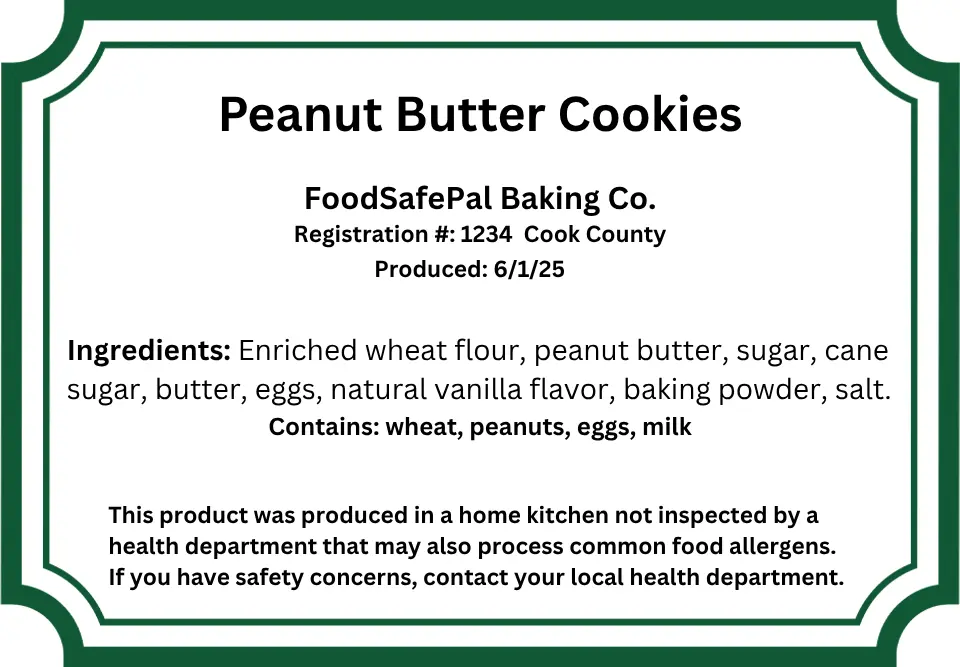
If you make items that are not easily labeled like cakes or small items like chocolates, you must request an exception and provide signage that includes all required labeling information at the point of sale.
Summary
Illinois’ cottage food law requires that each food you wish to make and sell have a label with the required information, such as your registration information and the list of your product’s ingredients.
The bottom line
Under the Illinois cottage food law, you can make and sell foods that don’t require time or temperature controls to keep them safe, like baked goods, dry mixes, canned jams, and more.
If you want to start a cottage food business in Illinois, you must first complete Certified Food Protection Manager (CFPM) training and pass an exam from an ANAB-accredited certification program.
FoodSafePal offers training to help you prepare for this exam — no fluff, just what you need to know. Starting in September 2025, the accredited exam will also be available directly through FoodSafePal.
After you pass the exam, you’ll receive a certificate valid for five years. You’ll need to include a copy of it with your registration paperwork to your local health department.
Illinois Food Manager Certification (CFPM) Prep
Your best training for preparing to pass the food manager certification exam with ease.

Each food you make and sell must also have a label with the required information.


